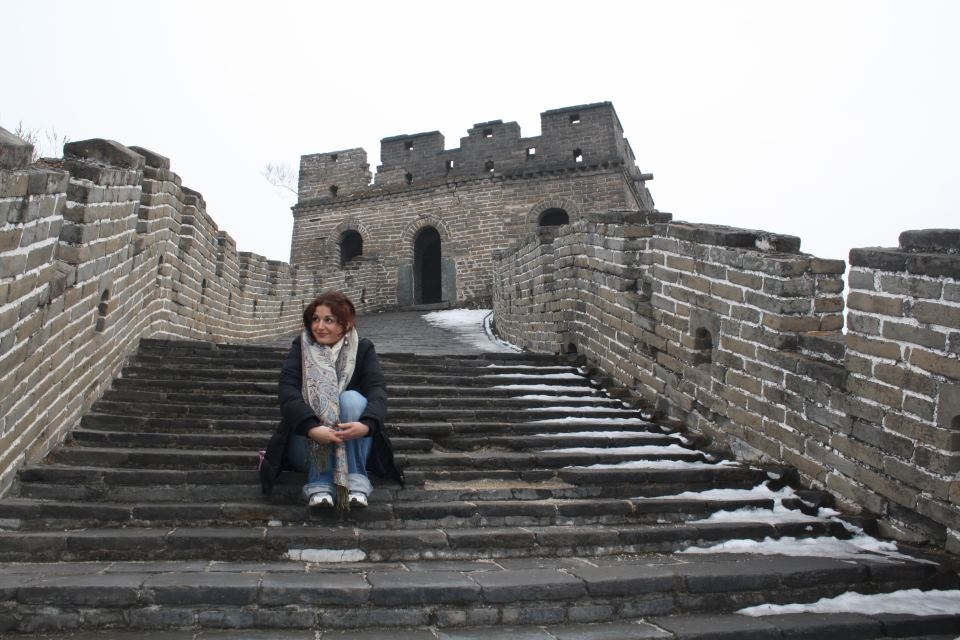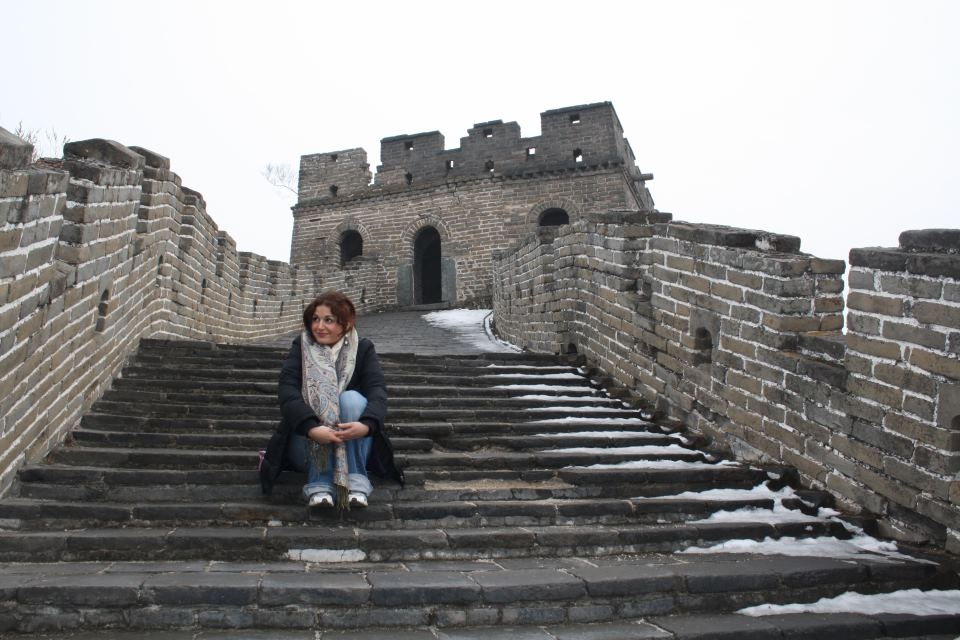What was food like in China? Can you describe how you went about breakfast, dinner and lunch?
The food in China was amazing!
But it was nothing like the Chinese I had tasted here at home. Here in the west we only get certain dishes and they are usually very westernised, authentic Chinese kitchen is so varied with each region having its own speciality. I usually varied between a my western breakfast as there was a local supermarket close to where I lived that sold western food and the typical Chinese breakfast. My favourite was warm soya milk accompanied with a deep fried bread called youtiao. In Wuhan where I was the first year of my stay in China they had their own breakfast speciality which was called rou gou mian and that was boiled noodles topped with this delicious peanut sauce and some very spicy herbs. At first my stomach could not really handle it, but by the end of my stay it became one of my favourite dishes and something I would eat for breakfast, lunch and dinner! My lunch was often provided by the school I worked at and there were always a selection of ten or more dishes to choose from. My dinners were mostly spent with my co-workers and we usually would eat out and once again, the variety of food was endless. I think that is the reason why I gained like 10 kilos during my stay in China. I warn you, the food is just too good!
What is your view on freedom of speech in China?
Freedom of speech…hmn…well as a foreigner I think you can get away with a lot, but it is important to remember that China is not a democracy and it has its own laws and rules. You are a guest there in the same way you are a guest at someone’s house. You might not agree with everything your host stands for, but you would probably avoid hurting their feelings as much as possible. But to be honest, I never really worried about this; I knew that certain things were considered sensitive so I only discussed those matters with good friends or other expats. There are also certain things to think about if you do decide to live in China; facebook, youtube and twitter are all blocked in China, but there are ways you can get around that and almost every expat and Chinese friend I have in China has a proxy that allows them breakthrough the big nasty firewall. As my language skills improved I got to know people on a whole different level and also gained a whole new insight into the lives of “ordinary” Chinese people. I think it is important to keep in mind that China is a developing country and that changes don’t happen over night.
Did you take Mandarin lessons? How did you go about it?
I took Mandarin classes through my work and they were useful, but the most useful Chinese I learned was through Chinese friends and my local shop owners. After two years in China, I enrolled at Ren Min university in Beijing as a fulltime student. That was one of the best decisions I have ever made, I learned a lot during that year and also met some amazing people from all around the world. Most of them shared same experiences, they had come over to work and after a year or so decided to learn the language properly. We were all pretty comfortable with speaking Mandarin but it was the writing and reading that we needed to work on.
What’s your advice for people considering teaching in China?
It is not easy but I would recommend it to everyone with a bit of adventure in them. It is a great way of meeting people and to learn a new culture and see some amazing places. Teaching in China requires a lot of patience and being observant. Students are usually shy and for some you are the first foreigner they have encountered in their life, so they are very curious but because of cultural differences they might not be very talkative, they also don’t like to talk so much if they feel unsure of their English skills, because they don’t want to look foolish. They might not ask any questions without being prompted first and many times they pretend as if they have understood something, but really they haven’t, but they are just to shy to say something. I am going to be honest and admit that there were many times, when I felt very frustrated as I felt I wasn’t getting any response from my students, but as I learned more about the culture, I also learned how to adapt myself to them and actually really enjoyed teaching and getting to know my students. Some of my students are now in England studying at different universities and we still keep in touch and meet up whenever we have the chance. I also learned some very useful Chinese from my students, so in a way I became their student and they loved to teach me slang!
How do you suggest a new teacher approaches their first lesson?
I think the most important thing to consider on your first lesson is to be open and friendly. Open up to your students, like I mentioned before, some of them might have had very little contact with foreigners before. Introduce yourself and show them where you are from and maybe even bring some pictures from your hometown, favourite football team, your pet etc. They love it, you might not be able to tell that from their faces but three months later, they will come up to you and tell you how interesting that first lesson was. On my first lesson, I started with introducing myself and then asked them to introduce themselves. Be creative, be observant and don’t be afraid to ask for help. Ask your fellow teachers who have been in there longer than you, they are your best source of information and they can help you tremendously and remember that each class can be different. Sometimes, I have completely changed my way of teaching ten minutes into the lesson when I have seen that my students were not engaged enough, and most important of all- have fun! The more fun you have teaching the more fun they will have learning from you and that is when you will receive invitations to dinners and random gifts such as dried octopus and chicken feet.
Other things to think about:
Chinese culture is very respectful and people don’t like to say no. A lot of times, instead of refusing you something directly they will instead use the word; maybe. A s a foreigner you need to know this and you need to accept this, being honest is not the same as saying what is exactly on your mind, this is actually considered a bit rude at times. Chinese people usually talk around an object and therefore, you need to be patient and try to not get frustrated when this happens ( this is when you can find comfort in your fellow expat friends) . Usually people are very friendly, helpful and humble. I would advice you to learn Mandarin, it will not be easy, but trust me it will be rewarding. Whatever you do, and this something very easy to do, do not stay or constantly hang around with your expat friends, make sure you get out there and make friends with Chinese people. Chinese can be hard to get to know, but totally worth it. The friendships I have made in China are the kind of friendships I will cherish the rest of my life.
By Jasmine Heydari
Has this inspired you to begin your own teaching adventure in China? Explore our programs or head to our application page to get started today!



Leave A Comment
You must be logged in to post a comment.